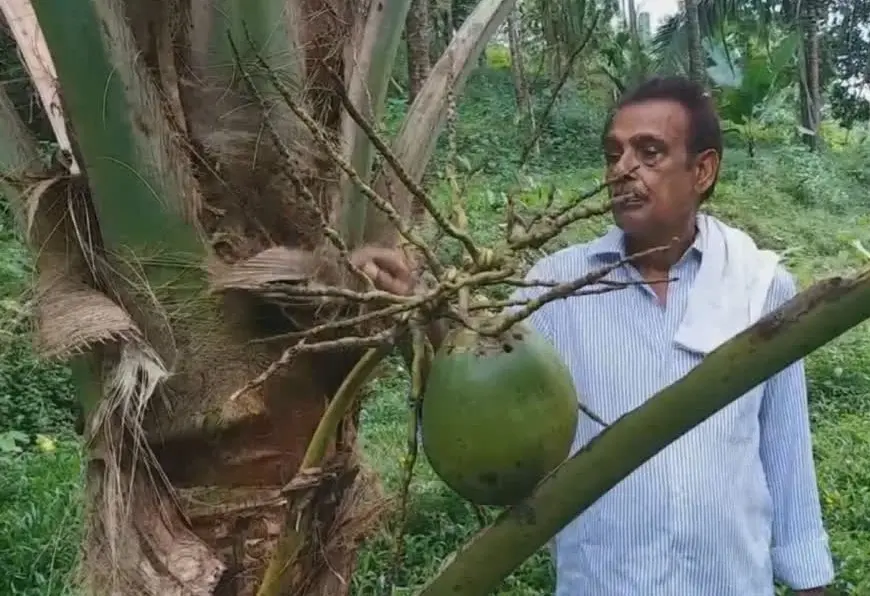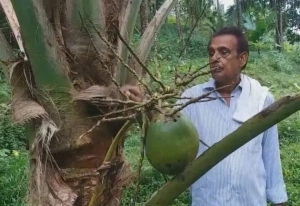
Pic courtesy ETV Bharat

Pic courtesy ETV Bharat
Posted: Saturday, 02 Nov 2024 20:55

Alongside grape, cashew, and katta chakka wines, India will soon welcome an innovative tender coconut wine, the first of its kind. After a 20-year wait, retired deputy tehsildar and farmer, Sebastian P. Augustine of Bheemanadyvillage in Kasaragod District in Northern Kerala,hasfinally obtained approval to produce this unique wine following a lengthy legal battle involving China.
Sebastian secured a license from the excise department to produce low-alcohol wine from fresh juice and fruit. He highlighted that a significant hurdle was China’s existing license to produce wine from coconut water. However, he gained approval by demonstrating that his wine was made from fresh tender coconut. He has already applied for patents in other countries too.
Also Read : From Archives 2008: Wine from Kerala Kokonuts
According to ETV Bharat his tender coconut wine will soon be available in the market-in Kerala and hopefully in the nearby states. The idea first came to him in 2004, but he had to follow up for 20-years to manage the approval-indicating the bureaucratic hurdles one might face in India.. Known locally as ‘Baby Sir,’ Sebastian is a recipient of Kerala’s ‘Kera Kesari’ award, which recognizes his contributions to agriculture.
The wine will be produced by a boutique winery owned by him. River Island Winery uses tender coconuts, dragon fruit, mango, banana, jackfruit, and papaya from his own farm to produce this unique wine. For a 250-liter batch, 1,000 tender coconuts and 250 kg of fruits are required, without adding water. The use of only tender coconut water, he says, enhances the wine’s quality.
This method, according to Augustine, ensures a high-quality wine, which will be produced in a small winery within his farm, following ‘horti wine’ guidelines that mandate the use of fresh juice and fruits. Once produced, the wine will be available exclusively through authorised beverage outlets.
Sebastian’s innovation adds to India’s diverse wine portfolio.
Subhash Arora
